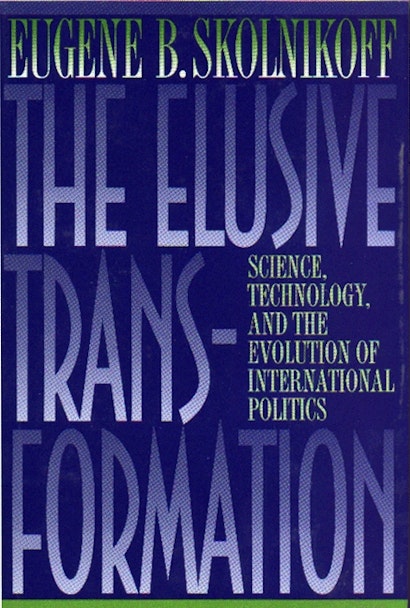Eugene Skolnikoff treats the roles of science and technology across the entire range of relations among nations, including security and economic issues, environmental questions, international economic competitiveness, the spread of weapons technology, the demise of communism, the new content of dependency relations, and the demanding new problems of national and international governance. He shows how the structure and operation of the scientific and technological enterprises have interacted with international affairs to lead to the dramatic evolution of world politics experienced in this century, particularly after World War II.
Eugene B. Skolnikoff is Professor of Political Science at the Massachusetts Institute of Technology. He has been Director of the Center for International Studies at MIT, and has served on the staff of the White House Office of Science and Technology in several administrations.
"Thought-provoking.... Although the broad relationship that emerges between science and technology and international affairs is a dynamic one, Skolnikoff argues that the process of change is evolutionary rather than revolutionary. Skolnikoff is talented at weaving the argument between science and technology and international developments.... Full of stimulating and informative ideas."—Margaret Sharp, Nature
". . . without doubt the best general introduction available. . . . will undoubtedly be the general 'reference of choice' in technology and international affairs for years to come."—IEEE Spectrum
"This book offers a very well written and thoughtful overview of the likely impacts of science and technology on international politics."—George H. Quester, American Political Science Review
". . . a remarkably good review of the full range of the science and technology of international politics."—Allan Mazur, Contemporary Sociology
"A volume of sweeping ambition, covering both past and contemporary trends. . . . This compact volume offers much to anyone interested in current global trends, not least to those in the scientific, engineering and medical communities. . . . With almost 40 years of intense professional involvement in this subject . . . Skolnikoff brings an extraordinary range of both scholarship and practical experience to this debate."—Rodney W. Nichols, American Scientist
"A formidable piece of work that represents not only the results of extensive research but also the accumulated experience and wisdom of probably the country's best observer and analyst of the intersection between science and technology and international politics. There is no other work that has this breadth of coverage."—Ted Greenwood, Alfred P. Sloan Foundation

